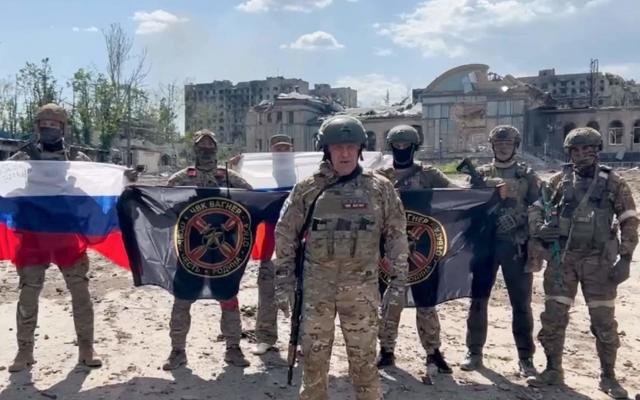The private armies Putin has unleashed on Ukraine may lead to his downfall

Views (80)

Putin’s misadventures in Ukraine could lead to violent turmoil across Russia and the regime’s end. In recent weeks we have seen humiliating drone strikes against Moscow, in the Bryansk and Klimovsky regions, Krasnodar district and Belgorod city. There has been shelling of the Belgorod region, intensified this week and forcing the evacuation of thousands of people.
Putin’s misadventures in Ukraine could lead to violent turmoil across Russia and the regime’s end. In recent weeks we have seen humiliating drone strikes against Moscow, in the Bryansk and Klimovsky regions, Krasnodar district and Belgorod city. There has been shelling of the Belgorod region, intensified this week and forcing the evacuation of thousands of people.
These attacks are hugely significant: they represent the first external military ground offensive on to mainland Russian territory since the Second World War. They might well have consequences to match.
Putin, once thought of as a strategic genius, has unwittingly prepared the ground for what might follow. As he sought to privatise recruitment to fuel his war rather than impose another wave of forced mobilisation, private armies have snowballed. The biggest is Wagner, active in Ukraine since 2014 and now grown into a monster. Hot on its heels is Kadyrovtsy, the private army of infamous Chechen leader Ramzan Kadyrov. It is a large force notorious for brutal war crimes in Ukraine and about to return to front-line combat there.
Many other private armies have been set up by former military officers, often made up of ex-servicemen, funded, equipped and trained by state resources. Remarkably to the non-Russian mind, even defence minister Sergei Shoigu has one of his own, Patriot. There are corporate militias as well, such as that belonging to the energy giant Gazprom, which has battalions fighting at the front.
Oligarchs including Gennady Timchenko and Oleg Deripaska have created their own combat units or attached themselves to existing private military companies. Tellingly, as Wagner boss Yevgeny Prigozhin himself remarked: “Everyone is saying that there will be a power struggle at some point, and everyone needs their own army.”
The Kremlin has also instructed authorities in each region to create their own volunteer battalions to fight in Ukraine, with allegiance to the local leadership rather than Moscow. Some of these men will return home disillusioned and embittered.
Putin sees these armies as instruments to consolidate his own power and that of the Russian state, not as political players in their own right. But when the chips are down he may not be able to call the shots. Prigozhin, for example, is a politically ambitious and volatile man. Although he has declared war on the general staff and Moscow’s “elites”, he has remained loyal to Putin. It might not take much for that to change. He is unlikely to balk at using the forces at his disposal to manoeuvre for power and influence when he feels the time is right.
Alongside – or opposed to them – are many others, not just the private military companies and regional battalions, but also the plethora of armed organs of the government, including the FSB, GRU and Defence Ministry. Then there is the army itself, whose ranks include large numbers of abused, humiliated and disaffected soldiers, commanders and even generals. If Putin cannot repel the growing threats to his own homeland and at the same time secure some kind of victory in Ukraine, it is possible to envisage the Russian establishment falling apart into a violent mêlée of opposing armed camps.
0 Likes
